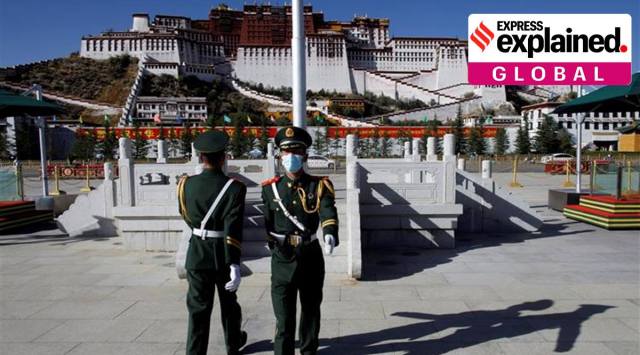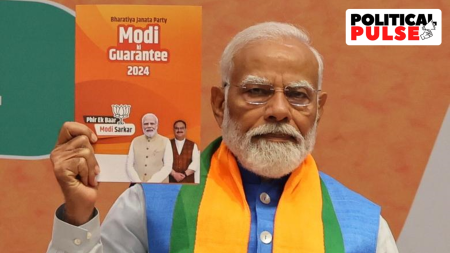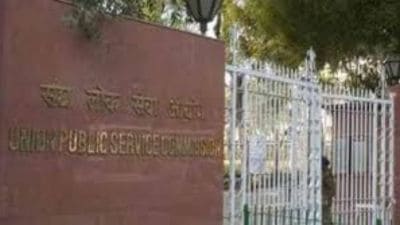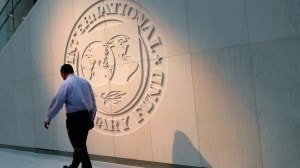- India
- International
Reading the new US policy on Tibet: Snubs to China on Dalai Lama, rivers
What is The Tibet Policy and Support Act, recently passed by the US Senate? How has China reacted? What does it mean for US-China relations?
 Issues related to Tibet, Taiwan and Hong Kong… are China’s internal affairs that allow no foreign interference”.
Issues related to Tibet, Taiwan and Hong Kong… are China’s internal affairs that allow no foreign interference”.The Tibet Policy and Support Act, passed by the US Senate earlier this week, bookends a turbulent year in US-China relations. The House of Representatives had passed the legislation in January. It will become law after the US President signs off on it.
The earlier version
The TSPA is an amended version of the Tibet Policy Act of 2002, which came into existence during the Bush Administration. But in an indication of just how important he considered relations with China, President George W Bush distanced himself from this Congressional action, and wrote strong words against it in his signing statement, in which asserted the administration’s right not to implement parts of the act. He wrote: “Regrettably, the Act [H.R. 1646] contains a number of provisions that impermissibly interfere with the constitutional functions of the presidency in foreign affairs, including provisions that purport to establish foreign policy that are of significant concern.”
He also said his approval to the Act did not constitute his adoption of the various statements of policy in the Act as US foreign policy, and said these would be taken as “advisory” statements only, “giving them the due weight that comity between the legislative and executive branches should require, to the extent consistent with US foreign policy”.
US and China, today
US-China relations have become much more difficult over the last two decades, particularly worsening in the Trump Administration, and more so in 2020 over matters ranging from the pandemic to trade tariffs, and its cross-world coalition-building against Chinese superpower ambitions. Earlier this month, the Holding Foreign Companies Accounting Act, targeting Chinese investments in the US, was signed into law. Earlier in the year, President Donald Trump signed into law the Hong Kong Autonomy Act.

President Trump is not expected to take a Bush-like view on the TSPA, which introduces stronger provisions on Tibet, plus teeth in the form of a threat of sanctions, including travel bans on Chinese officials. How the Biden Administration, expected to frame its own China policy, views TPSA remains to be seen.
Still, most US administrations, the Trump Administration included, have broadly maintained a diplomatic balance between relations with China, and support for Tibet and the Dalai Lama. The State Department has a separate section on Tibet in its annual reports on human rights and religious freedom. But there has been no real push for talks with the Dalai Lama or on the release of political prisoners.
The Dalai Lama
Among the most significant amendments is that the TSPA makes it US policy to oppose attempts by Beijing to install its own Dalai Lama “in a manner inconsistent with Tibetan Buddhism in which the succession or identification of Tibetan Buddhist lamas, including the Dalai Lama, should occur without interference…”
The legislation makes reference to the Chinese government’s ‘Measures on the Management of the Reincarnation of Living Buddhas’ in 2007, and a March 2019 statement by the Chinese Foreign Ministry spokesperson that the “reincarnation of living Buddhas including the Dalai Lama must comply with Chinese laws and regulations and follow religious rituals and historical conventions”. It also refers to China’s installation of a 6-year-old boy in 1995 as the 11th Panchen Lama, and to statements by the present Dalai Lama explaining the traditions to be followed in the selection of a Dalai Lama, and that the authority to recognise the reincarnation of a Dalai Lama lies with him and his officials.
The Act also makes it US policy to hold senior Chinese officials “responsible for, complicit in, or have directly or indirectly engaged in the identification or installation of a candidate chosen by China as the future 15th Dalai Lama of Tibetan Buddhism” to have committed “a gross violation of internationally recognized human rights”, attracting sanctions under the Global Magnitsky Human Rights Accountability Act. The Act, named after a Russian tax laywer who died after being imprisoned while investigating Russian tax officials for fraud, authorises US officials to impose travel bans globally.
Other provisions
The TPSA has introduced provisions aimed at protecting the environment of the Tibetan plateau, calling for greater international cooperation and greater involvement by Tibetans. Alleging that China is diverting water resources from Tibet, the TPSA also calls for “a regional framework on water security, or use existing frameworks… to facilitate cooperative agreements among all riparian nations that would promote… arrangements on impounding and diversion of waters that originate on the Tibetan Plateau”. While the 2002 Act said the US should establish a “branch office” in Lhasa, the TSPA ups the ante by changing that to a “consulate”. It recognises the Central Tibetan Administration, whose President Lobsang Sangay takes credit for ensuring that the Senate took up the legislation for vote.
In a statement, Sangay said, “By passing the TPSA, Congress has sent its message loud and clear that Tibet remains a priority for the United States and that it will continue its steadfast support for His Holiness the Dalai Lama and the CTA. It is a momentous landmark for the Tibetan people.”
What China says
China had earlier said the TPSA “severely breached international law and basic norms governing international relations, interfered in China’s internal affairs, and sent a wrong message to ‘Tibet independence’ forces”. After the passage of the Bill through the Senate, China said it “resolutely opposes” the “adoption of Bills containing such ill contents on China. Issues related to Tibet, Taiwan and Hong Kong… are China’s internal affairs that allow no foreign interference”. A Foreign Ministry spokesman urged the US “to stop meddling in our domestic affairs under those pretexts, refrain from signing the bills or implementing the negative contents and items in them that target China and undercut China’s interests”.
If India is pleased at this latest US barb to China, it has not said so openly. India has mostly refrained from playing the Tibet card against China, and like the US, has a one China policy. It was only this year, in the ongoing Ladakh standoff, that it used special forces made up almost entirely of Tibetan exiles to occupy strategic heights in Pangong Tso’s south bank.
More Explained
EXPRESS OPINION
Apr 16: Latest News
- 01
- 02
- 03
- 04
- 05








































